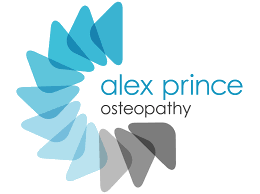It's that time when as an osteopath in Bristol, many patients ask me why their joints and muscles ache more in Winter.
And they ask what can be done to relieve, treat and prevent the aches from happening.
We often find ourselves a bit stiffer, tighter, and aching more than usual in Winter.
The reasons why are perhaps fairly obvious to some, but what about the physiology?
One of the basic osteopathic principles is the ‘rule of the artery is supreme’.
What do we mean by this? Well, good blood flow is the key to healthy body function.
Our core body temperature is 37 degrees. Our body functions and performs optimally at this temperature.
If our body is exposed to cold, it responds by reducing the amount of blood flow to the periphery areas of the body.
This is a normal and healthy response, to keep the body's core and vital organs warm and functioning well. The result for many might be slightly less blood flow to the limbs.
Since muscles, soft tissues and joints all perform best when they are warm and have good blood flow, if they are colder and have less blood flowing to them performance and efficiency can be reduced.
The flow of warm oxygenated blood might be slightly reduced and also waste products produced in muscle function are less efficiently flushed out from these tissues.
This can make these tissues more vulnerable to injury, and if there’s also a build-up of toxins and metabolites (waste products) such as lactic acid, this may cause a stiff, aching sensation (similar to when we are cold or the day after we’ve overdone exercise).
Body temperature affects circulation which in turn can affect the functioning of the muscles and joints. It can make them feel stiff and ache. The cold weather in Winter can make us feel stiff.
As a leading osteopath in Bristol, I advise my patients to take a few simple but effective measures against Winter aches and stiffness, including:
-Stay warm and dress appropriately
-Warm up well for exercise
-Hydrate (this helps muscle cells function better, and joints become more supple)
Having said all this, getting cold can be a good physiological thing to do. We all know about ‘ice baths’ to aid recovery for athletes.
I'm a big advocate of the physical and mental benefits of cold-water swimming.
This has proven health benefits. It does of course need to be done sensibly and responsibly, especially during the Winter months.
The key to locking in the benefits of cold water swimming is to warm up well afterwards creating a surge of blood flow to flush through the body.
Read this article for more tips from me on maintaining good muscle and joint health in Winter.
If you've never had an appointment with an osteopath in Bristol before, check out my top tips here on what to look out for.
To make a booking with me to treat any Winter aches and pains, please visit here.

